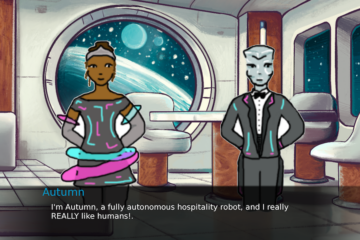Blog topic suggested by Maura Yzmore
So, I am not good at this, and have never successfully queried, but I’ll let you know what I’ve learned so far.
Don’t Bury the Lede
I was quite a ways into a timed pitch session when I said, “now that I’m a Hugo finalist…” and the editor, who had been sending vague “lets wrap this up” vibes stopped me and said, “WOAH. STOP.”
She then told a story about a writer who queried her with a novel about something very technical and how it was only at the very end that he mentioned being an expert in the field, like he was president of the that-stuff society. She equated this to my having nearly not mentioned my Hugo nomination. Had she not been consciously giving me a chance, she wouldn’t have stayed online long enough to learn it. She might not have read that scientist’s query letter to the end and would have missed his expertise, which made her much more interested in the book.
So yeah, put that shit first.
Your Pitch Doesn’t Have to Be 100% Accurate
I struggle with hedging and hawing and trying to explain the details … like I’m afraid of being caught out exaggerating? “Ki is a thief,” I write, and immediately think, “But, I mean, not a cat burglar or professional thief and she probably wouldn’t describe herself that way, so I should put down “Ki is a girl who sometimes steals things”…
NO. That is not necessary. No one is looking for your pitch to be a dictionary definition, and you aren’t going to be dropped a letter grade if you are “caught out bending the truth.” Even if Ki never steals something or you failed to mention that the gay prince isn’t out of the closet. The query letter just has to be accurate to the feel of the book. To the type of book the reader likes. That’s the purpose of a pitch.
I’m studying teaching writing right now – and a lot of it is showing the student how to identify the audience and purpose of their writing. Like, the purpose of this essay is to explore a question and the audience is academics in the field. The purpose of a query letter is to get someone excited about this book you wrote, and the audience is someone who hasn’t read it yet.
Sounds obvious, but weirdly hard to keep in mind when you think the purpose is to summarize and the audience is a psychic judge?
Louder for those in the back: The purpose is NOT to summarize. The purpose is NOT to paint a complete and accurate picture. This is not a book report.
Try Writing the Pitch First
This is a suggestion I saw on a few blogs on the topic, and for my next book it’s what I’m doing.
They’re so hard, why not start with them? I don’t have the full plot sorted out, but I know what I want the book to BE. What excites me about it, so I wrote that, creating this almost certainly inaccurate pitch. Simply how I pitched the novel to myself:
Re-telling the Homestead Steel Strike, on Mars, staring the couple from my short story “The Plus One.”
Maybe it won’t be Homestead, but that was the first germ. I’m already leaning more toward Haymarket? But whatever, the germ, the core is: Strike on Mars, with Blaine and Keith. Anyway, let’s try to make this sort-of-a-query. I’ll need the query to be narrative, like a mini-story, and start with a character, because characters are good.
Keith Davies works at a steel mill on Mars. Three years ago, the workers voted to accept a temporary pay cut as the mill expanded to meet demand as a colonization race to the inner planets heated up. Now the contract is up, and profits are up, and the factory administration wants to keep the salaries low. Should Keith join the strike? On the one hand, getting new workers from Earth is slow and expensive, the mill needs them. On the other hand, a week without a paycheck could be a week without oxygen.
Meanwhile, his wife, Blaine, a US Marshal, is recruited to stop the strike from happening.
I can edit it as I go, and stop and look at it now and then to remember why I wanted to start this project when it gets bogged down.


